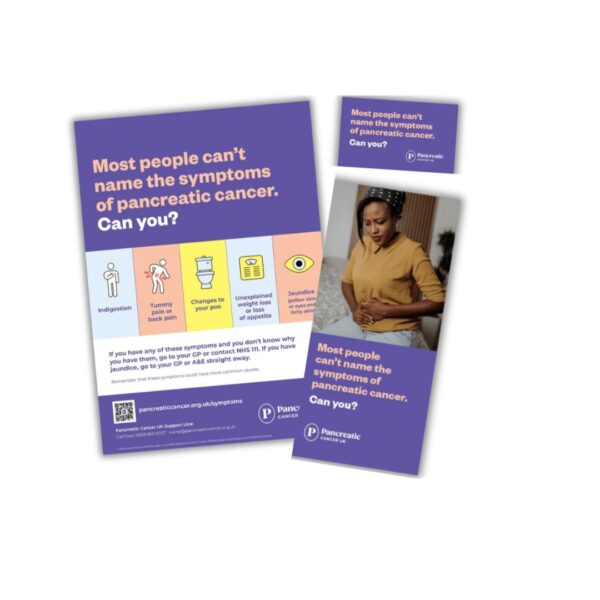
Symptoms collection
If you want to raise awareness, the materials on this page can help. You can order free leaflets and posters to give out or to make an awareness display, or download and share our digital graphics to use on social media.
We make a noise because people have gone unheard. We are relentless because the disease is ruthless.
We care more because people feel forgotten. Whatever we do, we give it everything and then some.
Help us raise awareness of the signs and symptoms of pancreatic cancer by downloading and sharing the awareness assets below.

If you want to raise awareness, the materials on this page can help. You can order free leaflets and posters to give out or to make an awareness display, or download and share our digital graphics to use on social media.

This collection includes all our symptoms awareness assets as well as additional awareness graphics for you to share. Please note that some of the infographics contain data on pancreatic cancer survival.

19 February 2026
On the 4th February 2026 – World Cancer Day, the Secretary of State for Health and Social Care, Wes Streeting revealed the eagerly awaited National Ca...

5 February 2026
Our Head of Research, Dr Madina Kara, comments on the recent news that scientists from the Spanish National Research Centre have been able to eliminat...

4 February 2026
Today, Secretary of State for Health and Social Care, Wes Streeting revealed the eagerly awaited National Cancer Plan for England. Our CEO, Diana Jupp...